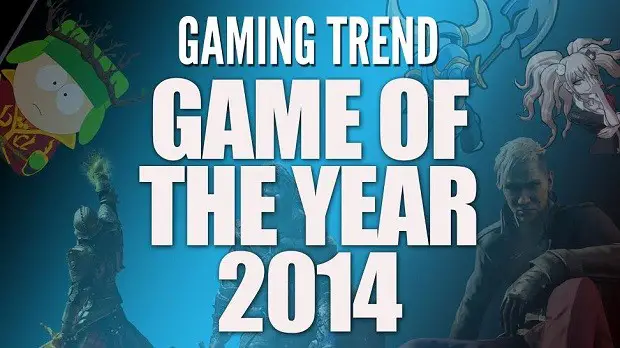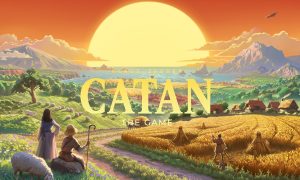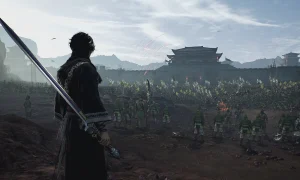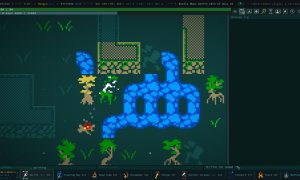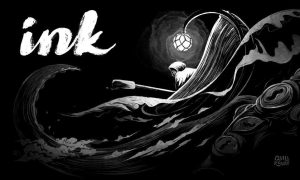Coming up with our final category winners was a bit of an arduous process. First we all voted, but the raw numbers weren’t sitting well with many editors. Then we held a 3-and-a-half-hour-long podcast where we hashed out all our remaining issues. The result is the winners you’ll find below, where we talk about what games did what better than everyone else.
Biggest Surprise: Middle-earth: Shadow of Mordor
Not only is it the most surprising of 2014, it is one of the most surprising in recent years. The story remained approachable even for people who had no attachment to the Middle-earth/Lord of the Rings lore, although it certainly blew no ones socks off.
Where the game really wowed was its Nemesis System, a constantly evolving mechanic that no one saw coming, let alone actually working to perfection. On top of that, the combat built upon Batman: Arkham Asylum’s excellent mechanics by including more combo finishers and establishing an overall more brutal feel. Simply put, Middle-earth: Shadow of Mordor is the definition of “Biggest Surprise.” – Jay Malone, Editor and Certified Warchief
Biggest Letdown: Assassin’s Creed: Unity
I was very excited about Assassin’s Creed: Unity. Paris in its most tumultuous time, vastly improved parkour mechanics, entirely focused on next-gen consoles and PC, a vast open world with more to do than ever before — what could possibly go wrong? If the patch sizes are any indication, roughly 1/4 of it.
Serious performance problems on all platforms, bugs in the patches that caused a re-download of the entire game, crashing, falling through the world, parkouring onto thin air, and entirely too frequent physics bugs were enough to make the game literally rip its own face off. Throw in a lackluster ending and strap it to another barely-likeable protagonist and you have to a recipe for disaster.
Watch Dogs was delayed, Assassin’s Creed Unity was delayed, The Crew was delayed — the first steps into the current gen platforms has been more than a little bumpy for Ubisoft. – Ron Burke, Executive Director and Editor-In-Chief
Best New Gameplay Mechanic: Nemesis System from Shadow of Mordor
2014 wasn’t the greatest year for extremely innovative mechanics, with most franchises building on past installments’ successes, which made it easy for Middle Earth: Shadow of Mordor’s Nemesis System to stand out from the rest of the pack.
The mechanic created a backstory running along with the core story of Shadows of Mordor, with Uruks trying to prove their mettle in a series of trials. If Talion dies at any time, then the Uruk landed the killing blow is promoted. The mechanic puts forth a challenge to all next gen role playing games, demanding that every death have impact and meaning in the game world, instead of simply tossing you back to a checkpoint. Spencer Campbell, Editor
Best Protagonist: Bigby Wolf from The Wolf Among Us
The Wolf Among Us has players controlling The Big Bad Wolf, a character we’ve been trained to hate for our entire lives, but somehow Telltale, along with a team of talented comic book writers, have managed to make him so relatable. Players are forced to make the tough decisions while exploring a complex investigation in which they’re as lost as Bigby.
What makes Bigby such a great hero is his dark past. He’s constantly trying to make amends for his previously vicious ways but also enforce the law in Fabletown, and you can feel the push and pull between those two opposing forces alongside him. Spencer Campbell, Editor
Best Antagonist: Monokuma from Danganronpa
When trapped inside Hope’s Peak Academy and on the shores of Jabberwock Island, the villainous presence that is constantly berating the casts of the Danganronpa series to kill one another is an animatronic bear named Monokuma. This black-and-white bear tells the students of Hope’s Peak Academy that they must end another’s life if they want to escape into the outside world. Through proper motivation,, Monokuma turns the brightest High School students on the planet against one another all for what seems to be his own enjoyment. However, in reality, his motives are far grander in scale
[Massive spoilers for Danganronpa below]
After Monokuma is unmasked as Junko Enoshima, Hope’s Peak Academy’s Ultimate Fashionista, she reveals to the casts her true goals: to spread despair across the entire world.
What makes Junko such an incredible villain is that she is threatening is not because of violence or intimidation, but because of how she so completely manipulates people into doing her bidding. Her ability to influence others is akin to a disease infecting the minds of people who would come to follow her.
Through meticulous planning, Junko was able to cause an uprising that leveled the world. She did all of this in order to feed off the despair of others, a feeling she fetishizes off of. Even in her last moments, Junko thrives on the despair she feels knowing death is imminent. But death would not erase her influence, as Junko’s ability to plan for all possibilities included her end, ensuring that despair would prosper even with her gone. Junko is our favorite antagonist of 2014 because her strength isn’t in threatening people, it’s in how she’s able to convert them to her cause. – Kenneth Shepard, Lead News Editor
Best Companion: Dorian from Dragon Age: Inquisition
Simply calling Dragon Age: Inquisition’s Dorian Pavus “charismatic” would be an understatement. The Dragon Age series has been home to many the charming and witty companion, but there aren’t many with the same noble aspirations and powerful backstory that Inquisition’s Tevinter pariah.
Never one to hold his opinion back, Dorian plays the role of the sassy, antagonistic friend in Inquisition’s group, but after the player learns more about him, they find that it’s all a mask for a man who’s conditioned himself to deflect affection for fear of being hurt after he’s been subject to persecution in his homeland.
Dorian isn’t relegated to the character delivering fantastic one-liners, he’s a man with a noble ambition to better his home after he’s been given every reason to leave it behind. Whether the player is simply Dorian’s friend, or pursues a loving relationship with him, Dorian leaves a meaningful impression that lasts long after Inquisition’s credits roll. – Kenneth Shepard, Lead News Editor
Most Memorable Moment: Chapter Zero from Danganronpa 2: Goodbye Despair
At first, Danganronpa 2: Goodbye Despair’s Chapter Zero seems like a completely illogical paradox.
You’re given enough context clues to understand that it takes place before the game proper, yet everything that you see within it seems to contradict what you’ve already seen heading into the game’s finale.
This brief conversation between established character Nagito Komaeda and an unknown second character is shown out of context, gives almost no exposition as to why it’s happening, doesn’t line up with almost anything you’ve played through, but does leave you with a shaking feeling that it still makes sense.
The implications of Chapter Zero are just as horrifying as the truth that is eventually revealed, and it becomes apparent that this quick interjection is an unmasking of a mastermind, the identity of which is one of Danganronpa 2’s most chilling revelations. – Kenneth Shepard, Lead News Editor
Indie of the Year: Shovel Knight
During our discussions, we gradually realized how hard it is to classify games as “indie” anymore. A year or so ago, it meant a random game produced in someone’s garage, office or basement, a labor of love that was the underdog you just had to root for. Those games were basic, simplistic, and served as time-killing palette cleanser between AAA releases. Now, it borders on the same meanings as “artistic,” “experimental,” and the birth of a cynical and jaded term “walking simulator.” This was a year of indies branching out, trying new things and not always succeeding, but at least moving forward.
In many ways, Shovel Knight is a hybrid of those two schools of indie development. A Kickstarted side-scroller, harkening back to the days of NES platformers and Metroidvania masterpieces, but with a modern approach to help it avoid the pitfalls of old. What it became was an eloquent piece, a game without any bells or whistles, and it is the best at everything it sets out to do.
The platforming is solid, and as the levels ramp up in difficulty it still never feels unfair or insurmountable. Combat is simple, but the mix of basic attacks, tools and the signature down-spike shovel attack create a toolbox of fun ways to approach every encounter. The bosses are memorable, the story simple and endearing, and the music and aesthetic of the game is a nostalgic masterwork. This is what it feels like to play a game that feels like what you remember NES classics feeling like. This is the rose-tinted goggles of gaming, and on or off, Shovel Knight is certainly one of the best titles of the year. – Eric Van Allen, Editor
Dev of the Year: Bioware
Very few developers can be criticized for caring too much about their fans, but the Canadian Studio Bioware is one of them. I wouldn’t criticize them for such a thing, but I can see why some people would. The hands-on approach that they take with their community is on a level very few developers care to aspire to.
When things go wrong, they always keep their fans updated, and they are always on-top of getting a patch ready. When criticisms are leveled at their games at their lowest points, they won’t make the same mistakes again and will aspire to make the game the fans want to play. When mistakes are made, Bioware is ready to fix them.
They even go above and beyond by releasing free content, blogging about why certain decisions were made, and staying involved with the fans on social media. They streamed Dragon Age Inquisition pre- and post-release, and they pay attention to their forums. The best kind of developer is the developer that cares about the people who buy their games and Bioware is that developer. – Niko DelValle, Contributor
Best Story: Danganronpa
Danganronpa’s premise is something that is easily explained to others, but is far more complex than a simple synopsis can convey.
A group of students are trapped within a school and told by an animatronic bear named Monokuma that if they want to leave, they have to murder a classmate without getting caught. The concept is terrifying, and can easily pique the interest of anyone interested in something so dark.
However, “what” Danganronpa is is far overshadowed by the “why” the games reveal in their final hours. The betrayal that you’ll suffer throughout Danganronpa takes the backseat to the one you find you’ve been subjected to in the end, because the scale of Monokuma’s plans stretches far outside the walls of Hope’s Peak Academy. Danganronpa is multi-faceted, thematically heavy, and altogether more compelling than any other story that came from games this year. – Kenneth Shepard, Lead News Editor
Most Emotional Moment: Last Resort of Good Men from Dragon Age: Inquisition
Admittedly, I’m a person who is very often profoundly affected by powerful moments in games. Death leaves its mark on me, loss consumes my headspace, but surprisingly, anger was the emotion I felt more strongly this year than any other, and it gave way to a much more personal connection to a character than I’ve felt toward any other all year. The moment that caused this was one side quest in Dragon Age: Inquisition.
After spending any conversation I had with him flirting with him, I found that what made Dorian Pavus more endearing than any other character in Inquisition was his personal quest, one that had me accompanying him during a conversation between him and his estranged father. Here I found out that Dorian left his family when his father attempted to use a magic ritual to “fix” his gay son. When I found this out, I felt a burning in my chest and tears filled my eyes. I was so angry and wanted nothing more than to get Dorian out of there.
When developers are inclusive to oppressed individuals, you notice it. But when a studio takes the time to remind the world of their pain, it’s something truly special. – Kenneth Shepard, Lead News Editor
Best Female Performance: Ashley Johnson as Ellie from The Last of Us: Left Behind
Troy Baker’s performance carried us through much of the story in The Last of Us, but his absence in the game’s DLC, Left Behind is hardly felt, largely because Ashley Johnson’s performance is just so strong. Coupled with the game’s impeccable writing, Johnson takes us through her heart wrenching story of loss.
The material in Left Behind demands an actor who can pull out a range of complex emotions at every turn, and Johnson steps up to the plate, making it look (or at least sound) easy. – Spencer Campbell, Editor
Best Male Performance: Freddie Prinze, Jr. as Iron Bull from Dragon Age: Inquisition
Who would’ve thought at the end of this year, I would be lauding Freddie Prinze, Jr. for VO work over the likes of industry giants like Troy Baker and Nolan North? Mr. Prinze, Jr. is no newcomer to gaming, having already done voice work for a previous Bioware game, but Mass Effect 3’s Vega wasn’t nearly the same showcase for talent as the Iron Bull himself.
A charismatic, confident, almost jovial performance put the Bull at the forefront of Inquisition’s already-stellar cast, so much so that “riding the Bull” became a colloquial term for romancing the character in-game. Through both a surprisingly emotional companion plot line and a hilarious, well-written romantic sub-plot, Iron Bull was near and dear to every gamer’s heart in some way, and Freddie Prinze, Jr.’s excellent voice work is a large reason for that. Through every fierce battle, tavern drink and dragon slain, Bull’s voice ringing out over the din of combat always brought a smile to my face. I’m looking forward to Freddie Prinze, Jr.’s next VO appearance with eagerness, and can’t wait for another Dragon Age title, just so I can hear more from the Bull. – Eric Van Allen, Editor
Best Sports Title: NBA 2k15
2014 was a surprisingly strong year for sports games. Not only did the major hitters like NBA 2K and MLB: The Show continues to shine, but Madden NFL also impressed for the first time in a few years.
That being said, NBA 2K15 managed to still be at the top of the mountain. The gameplay mechanics have been improved upon in small but very helpful ways and the additions to the MyCareer mode only topped off a solid cake with delicious icing. It will be very interesting to see if 2015 will see the dethroning of NBA 2K, but 2014 is most certainly not the year. – Jay Malone, Editor and Certified Shaquille O’Neal
Best RPG: Dragon Age Inquisition
There are a lot of things that go into an RPG like Dragon Age: Inquisition. Few can compete with the scale on display here, but even fewer can compete with the quality. There isn’t a single place where Dragon Age displays a significant weakness. There are plenty of small problems, but none compromise the experience. It took Bioware a long time to get here, after so many messy releases… but my favorite Canadian studio has finally found their way again.
Dragon Age: Inquisition is a masterpiece. It has a great and nuanced plot, deep and developed characters, a powerful soundtrack, a grand scale, beautiful graphics, hard decisions to make, and lots of activities to pursue. These are all the things I look for in a great RPG, and Bioware has managed to put together what I consider to be an instant classic. It isn’t their first, and I hope it won’t be their last. – Niko DelValle, Contributor
Best Action Title: Middle-earth: Shadow of Mordor
I recommended this game pretty frequently this year due to the incredible Nemesis system, and the results were all the same. A few hours later I’d get a message that read “OMG! This game has the best combat EVER” or “Wait, I just turned an orc into my brain-lemming? So awesome” and they weren’t wrong.
Middle-earth: Shadow of Mordor came out of nowhere with a compelling combat engine, and an entirely new mechanic for the open-world genre. By running a story parallel to the world lore, Monolith and WBIE were free to craft a story that didn’t have to focus on the tentpole characters. Combining skills honed on WBIE’s other properties with the new Nemesis system had us coming back for the heads of our enemies with renewed purpose.
Even if you aren’t a Lord of the Rings fan, this game is a must-play. – Ron Burke, Executive Director and Editor-In-Chief
Best Graphics: Middle-earth: Shadow of Mordor
Man, a lot of beautiful games came out this year. Some were beautiful sheerly by graphic fidelity, boasting extreme graphics options like supersampling and 4k resolution. Others were just a beauty to look at, using techniques like hand-drawn animation and rotoscoping to really add something special to the game’s aesthetic.
Shadow of Mordor did a little of both. Offering high-quality textures for those who could use them, this game was easy for high-end PC gamers to boast benchmarks on, while still looking heads-and-tails above the pack on consoles. Smooth framerate, great optimization, and gorgeous animations made this game fantastic from a technical standpoint.
But even from an aesthetic view, Mordor is a hearty achievement. It takes one of the most dreary, bleak settings in the Tolkien universe and capitalizes on its strengths, showing how even a desolate canyon or rocky crag can be breathtaking in its own way. The second area of the game only serves to reinforce the graphical power of the title, but the main area of Mordor still stands out in my mind as a true achievement.
The facial animations for the orcs are amazing, and the detail used to display differentiation between each Captain and Warchief, along with signifiers of previous encounters with them like burns or scars, gave personality to a previously-homogenous group of creatures. Mordor made characters of the orcs, and gave the titular wasteland a personality of its own, as a brutal and unforgiving expanse. This game has received a great deal of well-deserved praise, and the graphic and aesthetic achievements it has accomplished are a big part of what makes it such an amazing title. – Eric Van Allen, Editor
Best Soundtrack: Danganronpa
Danganronpa was an easy choice in the category for best soundtrack. Whereas other games released this year, such as Shadow of Mordor and Dragon Age Inquisition, expanded on their thematic tone using music, Danganronpa created an entire atmosphere.
The game’s story was sinister, but just as often as the music matched the attitude of the narrative, the music captured the carefree and at time naive nature of its cast. Conversations about the cuteness of the cast were underscored with funky beats that help you forgot the evil tale unfolding in the background. – Spencer Campbell, Editor
Best Shooter: Titanfall
As a person that generally dislikes shooters, I was surprised to see myself become enthralled with Titanfall. Respawn’s debut project wowed many with its incredibly smooth combat and innovative mech inclusion. While there was little singleplayer to be found, the multiplayer retained a long lifespan due to the aforementioned combat. The mechanics were only improved upon by the quick movement options available at every player’s disposal. Whether you were hoping from building to building or going head to head with a humongous mech, Titanfall’s combat refused to disappoint. – Jay Malone, Editor and Certified MP5
Best Fighting Game: Super Smash Bros. for the Wii U
Super Smash Bros. Brawl was a huge disappointment to fans of the genre, since the series had taken a huge swing from hardcore fighter to casual party game between just two installments. Super Smash Bros. For the Wii U marks a return to a hardcore centered experience, but retains the accessiblity the series is known for with its simple controls and game breakingly fun items. Hardcore gamers get the equally balanced Omega stages, and casual folks get the board game themed Smash Tour. Smash Bros for Wii U does its best to cater to all audiences, and pulls it off nearly effortlessly.
More care was paid to balance and nuance of character attacks than ever before with Super Smash Bros. for Wii U. Every character feels powerful with, for the most part, move sets that separate them from the rest of the pack, making finding a “main” harder than ever, and we here at Gaming Trend like it that way. – Spencer Campbell, Editor
For more of Gaming Trend’s Game of the Year coverage, check out our GOTY hub, where you’ll find our personal top ten lists, the site’s official top ten, as well as a podcast of our deliberations.

See below for our list of partners and affiliates:
